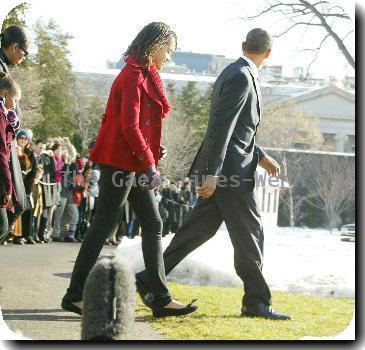Search for Ark. flash flood victims goes from desperate to grim, as anguished relatives wait
By Chuck Bartels, APSaturday, June 12, 2010
Search for flood victims goes from frantic to grim
LANGLEY, Ark. — The search for nearly two dozen people who disappeared after flash floods swept through a popular campground went from desperate to grim on Saturday, after teams that scoured miles of river and rugged wilderness found just two bodies.
The last time someone was found alive was late Friday morning, hours after a pre-dawn wall of water surprised sleeping campers at the Albert Pike Recreation Area, leaving them frantically trying to scramble up the steep terrain in the dark.
As the swollen rivers subsided and the hours ticked by Saturday, anguished relatives waiting for word of loved ones grew more and more frustrated, lashing out at reporters, knowing that at some point the search mission would become one of recovery.
“They’re just devastated. The time for shock has probably gone and now it’s just anxiety building. They’re beginning to fear the worst,” said Graig Cowart, the pastor of the Pilgrim Rest Landmark Missionary Baptist Church.
At least six of the 18 people confirmed killed were young children, according to a list released by Gov. Mike Beebe’s office publicly identifying 15 of them. Among them were five people, including three children, from Gloster, La., as well as three others from that state and six from Texas. State police said Saturday evening that there were 22 people missing.
Search crews were called in around 8 p.m. Saturday but planned to resume their work around 6:30 a.m. Sunday, police said.
The only Arkansas victim identified was Leslie Jez, of 23-year-old mother and wife from Foreman whose husband, Adam Jez, was listed as among those who survived the flood.
“So ready to go camping this weekend,” she wrote on her Facebook page Monday. “Kaden is going to love it!!” She later added, “Not looking foward to that cold water, but sounds like I might change my mind after seeing how hot it’s supposed to be.”
Authorities haven’t said whether the child survived.
About 200 searchers combed some 20 miles of wilderness along the receding rivers on Saturday. Crews on kayaks and canoes scanned the thick brush and debris in the swollen Caddo and Little Missouri rivers for bodies, but experts say many of those killed could be trapped under fallen trees and rocks, and that the river water likely won’t be clear enough to see through for several days.
Tom Collins, a Spring Hill volunteer firefighter, said the debris in the water was frustrating their attempts to recover bodies, and that there were so many fallen trees that it looked like a “beaver dam.”
“It’s just a tangled mess,” Collins said.
Other searchers rode out on horseback and ATVs to scan the heavily wooded area and rocky crags along the rivers, where debris hung as high as 25 feet up in tree branches. Cell phone service and visibility from the air in the heavily wooded area are very poor, hampering search efforts. Portable cell towers were dispatched to the area in the hope that stranded survivors would be able to call for help.
Beebe said many of those missing are people whose relatives called saying they believed they were camping in the area, but weren’t sure. He said officials are running the license plate numbers of vehicles found in the area to try to contact their owners.
Police haven’t said when they would call off the search efforts, and crews were expected to break once night fell and to resume at daybreak Sunday.
Authorities initially feared there were many more people unaccounted for. A register that would have showed who was staying at the campground was washed away in the flood, and a call center fielded inquiries about 73 people who hadn’t been accounted for as of Friday night.
U.S. Sen. Blanche Lincoln, Agriculture Secretary Tom Vilsack and U.S. Forest Service Chief Tom Tidwell toured the devastated area, and President Barack Obama expressed his condolences to the victims Saturday and offered Arkansas federal assistance.
Floodwaters rose as swiftly as 8 feet per hour, poring through the remote valley with such force that it peeled asphalt from roads and bark off trees. Cabins dotting the river banks were severely damaged, and mobile homes lay on their sides.
Forecasters had warned of the approaching danger in the area during the night, but campers could easily have missed those advisories because the area is isolated.
The last body found Friday night was retrieved 8 miles downstream from the campground, and authorities Saturday combed the headwaters of Lake Greeson, a large body of water about 20 miles from the camp that would be the furthest any of the bodies could travel.
The search was expected to take several more days, or even weeks, and family members of the victims were left not knowing if they’d have to return to their homes and jobs knowing that their loved ones’ bodies were still missing.
“This is not a one- or two-day thing,” said Gary Fox, a retired emergency medical technician who was helping identify the dead and compile lists of those who were unaccounted for. “This is going to be a week or two- or three-week recovery.”
Associated Press writers Justin Juozapavicius in Langley, Tony Winton in the Albert Pike Recreation Area and Jill Zeman Bleed in Little Rock contributed to this report.
Tags: Arkansas, Barack Obama, Facebook, Floods, Langley, Missing Persons, North America, Search And Rescue Efforts, United States







